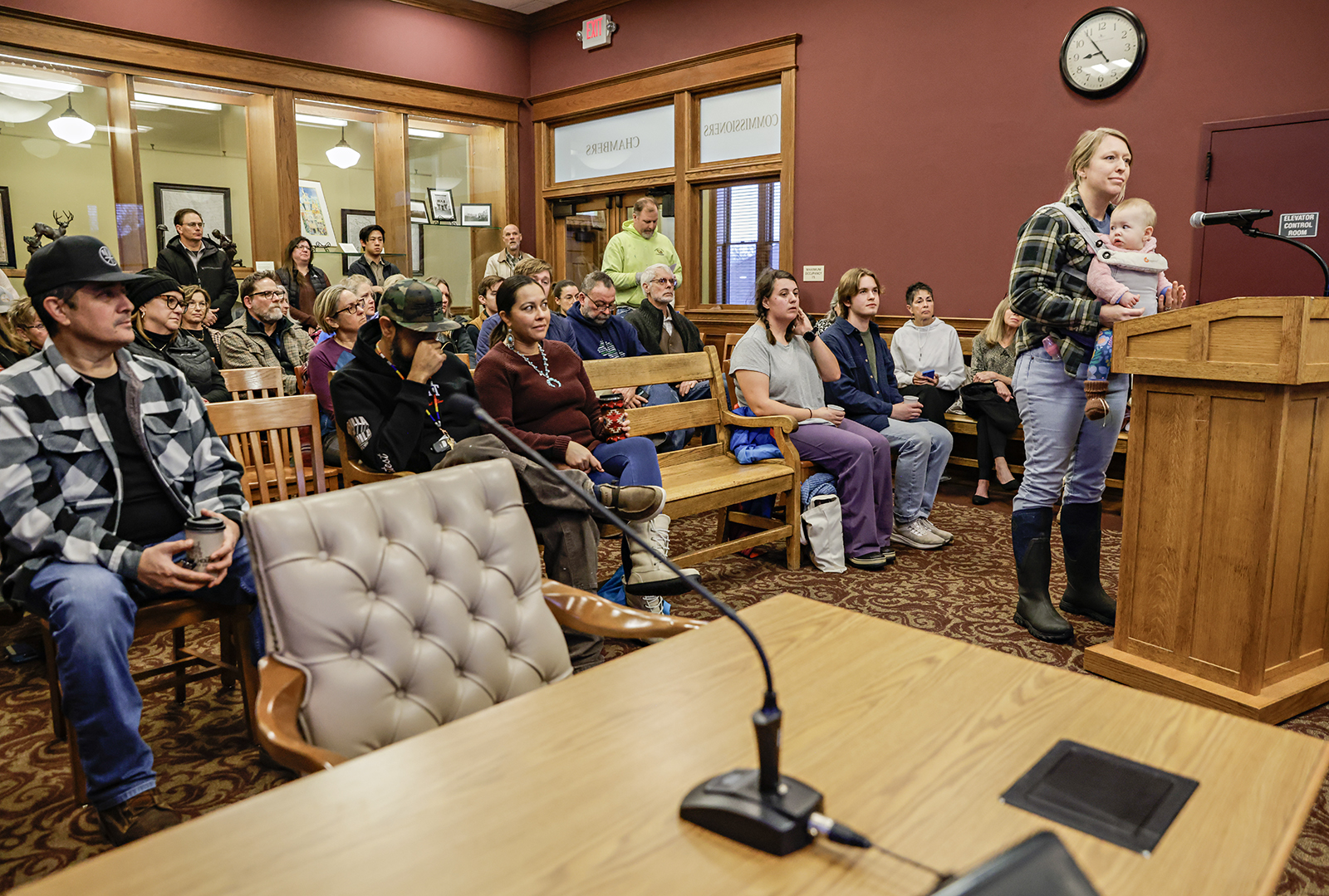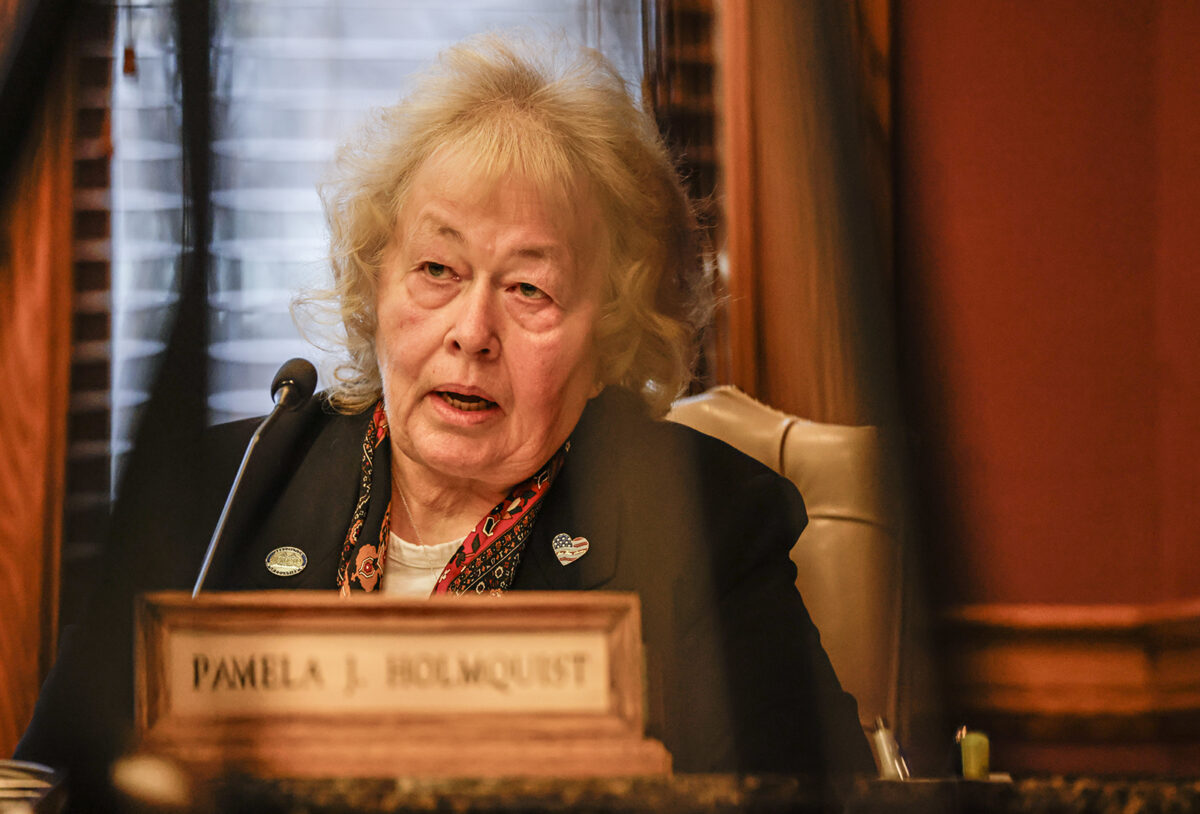Flathead County Commissioners Reject $4.5 Million in State Funding for Homebuyer Assistance Program
The funding that was set aside following the 2023 Legislature to address workforce housing will now be reallocated to other counties; commissioners cited skepticism over the program’s rollout and opposed using taxpayer dollars to help potential homebuyers
By Maggie Dresser
The Flathead County Board of Commissioners on New Year’s Eve rejected $4.5 million in state funds that would have included the region in a homebuyer assistance program developed by the Montana Legislature to help make workforce housing more attainable across the state.
In a 2-1 vote, the resolution to participate failed with commissioners Randy Brodehl and Pam Holmquist moving to deny the motion. Officials placed the resolution on the agenda at the end-of-year deadline of Dec. 31 following widespread pressure from residents in support of the funding.
The $4.5 million in state funding that was originally reserved for Flathead County will now be allocated to other counties that have opted to participate in the program.
The money is part of a $50 million allocation that the Montana Legislature set aside in 2023 following the passage of House Bill 819, which was crafted to create more attainable workforce housing across the state. To manage the funding, lawmakers directed local housing nonprofits to establish Community Reinvestment Organizations (CRO) for the new homebuyer assistance programs. The CROs would then be tasked with matching the government’s share of the funding allocation, for a total of $9 million in local homebuyer assistance.
NeighborWorks Montana (NWMT), a housing nonprofit that creates homeownership opportunities for the state’s workforce, has applied to become a CRO in several counties, including Flathead, to help implement the program. If approved, it would have provided homebuyers with 30% of the cost of a home as a loan or an investment while recipients agree to an equity cap of 1% per year. The cap allows the remainder of the equity to be recycled back into the program to provide long-term affordability for future homeowners. Eligible households must earn between 60% and 140% of the area median income (AMI).
Despite his skepticism of HB 819, Commissioner Brad Abell supported the program because the funding had already been set aside for Flathead County.
“I have concerns about this bill,” Abell said. “But if we don’t take it, we turn $4.5 million back to be split between the counties of the state of Montana.”
Commissioner Holmquist said she didn’t support HB 819 because she believes the program is designed to offer homes to individuals who cannot afford them. She was also skeptical of the 1% equity cap.

“Should the government be involved in whether or not someone owns a home?” Holmquist said. “I truly believe that government should never be in the business of picking and choosing winners and losers. That’s not government for all. The best thing the government can do is to work on simplifying the rules and regulations that builders have to go through to provide the housing that we need. That’s where the rubber meets the road.”
“I’ve been told by some very reliable sources that the market is actually correcting itself,” she added.
Commissioner Brodehl said he was against HB 819 because the funding comes from taxpayers; instead of setting up a homebuyer’s assistance program, Brodehl said the surplus money should have gone back into the pockets of residents and not a small portion of potential homebuyers.
“That shows what government involvement can do when government starts meddling in things like home-buying, which is not a typical program for the state government,” Brodehl said. “So, where’d that money come from? Again, that’s your money. It’s taxpayer money. Should we do the wrong thing just because it’s available? I struggle with that.”
During public comment, several residents including real estate agents, business owners, housing advocates and potential homebuyers echoed support for the program following several weeks of criticism toward commissioners.
“HB 819 is not a silver bullet, it’s not going to solve all the problems, but we can start to chip away at the housing crisis that we do have in the valley,” Iron Star Construction owner Kisa Davison. “It’s going to take all of us coming together at the table, private sector, government, homeowners, future homeowners, bankers — all of the above to come to the table.”
Wendy Brown of Chuck Olson Real Estate in Kalispell emphasized how the program is designed to sustainably help potential homebuyers and reminded commissioners that the funding will go toward taxpayers.

“It is already allocated, and it is going to a group of people who are taxpayers,” Brown said. “I think it’s very important to realize that these people are not buying out of their comfort zone for payment and that’s part of the brilliance of this program is that it allows them to keep their monthly payments where they can afford it and still enter the housing market, which is almost impossible in this community.”
Three residents voiced their opposition to HB 819 during the Dec. 31 meeting, describing it as a flawed program that will pose consequences like “glorified renting” if the money is accepted.
“The more the government tries to fix the problems they cause, the more money we get taxed and the more the government makes a mess of our lives,” said Doug Adams, a library board trustee and former Republican legislative candidate for Senate District 2. “And now our supposedly conservative state leaders have decided that the solution to the [housing affordability problem] is to tax us more so that they can cherry pick who will receive welfare to get into a house they can’t afford.”
State Rep. Tanner Smith, R-Lakeside, explained why he voted against HB 819 during the 2023 Legislature, describing the measure as “not bipartisan” but a “Democrat and Solutions Caucus” bill that all conservative Republicans voted against.
HB 819 was sponsored by State Rep. Paul Green, R-Hardin, and passed in a 61-37 vote with 27 Republicans who voted against it.
“This bill has local and state governments picking winners and losers with regards to who should receive these benefits,” Smith said Tuesday. “House Bill 819 is Karl Marx to a ‘T.’”
Smith, who owns a construction company in Lakeside, also said the market will “self-correct” and that conservatives must stick to their principles.
“Sometimes doing the right thing is doing the right thing when no one’s looking — so don’t take that money,” Smith said. “And all the conservative Republican counties not taking the money — that would have sent a message, a message to these folks that hey, we’re gonna stand to our conservative principles and this will self-correct.”